Identification of gaps for grassroots people to get access to ICT intervention
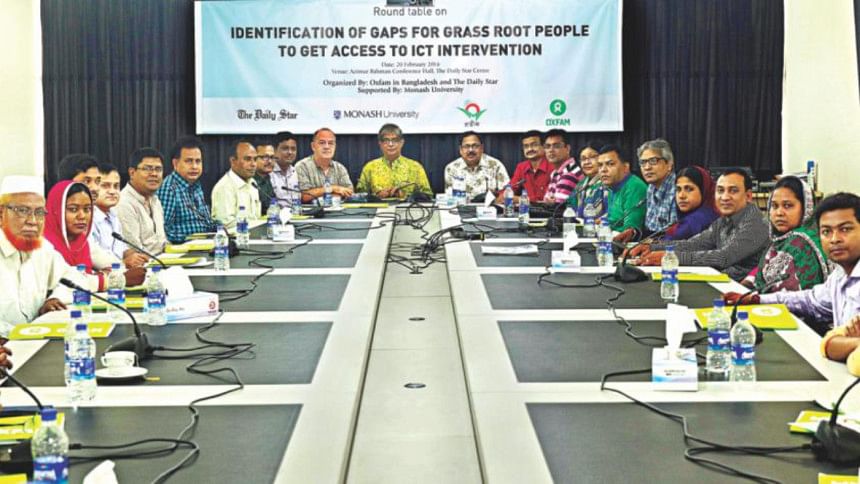
Oxfam in Bangladesh has been working with the number of ICT interventions as a media or tool to empower the community; specifically to raise and to hear the voice of vulnerable and marginalized women. The Participatory Research and Ownership with Technology, Information and Change (PROTIC) as of REE-CALL has been initiated to begin specifically addressing women's economic
empowerment in agriculture through technology as well as electronic device. The project is focused on women in agriculture and aims to increase women's participation through strengthening their
leadership role in information, communication and technology. The project PROTIC is funded by the Monash University, one of the leading universities in the world and working in Dakshin Kharibari village under Tepa Kharibari Union Parishad, Dimla, Nilphamari; and Borokupot village in Atuliya Union Parishad, Shyamnagar, Satkhira. Two development partners: Pollisree in Dinajpur
and Shushilon in Khulna, couple of public universities in Bangladesh and multiple stakeholders are working together to implement this research initiative in Bangladesh to empower the female
farmer through enhancing their knowledge, information and skills regarding modern technology and electronic devices.
In association with PROTIC from Oxfam in Bangladesh along with Monash University and The Daily Star the round table discussion on 'Identification of gaps for grassroots people to get access
to ICT intervention' has been held to explore the Government intervention toward ICT in rural areas and to identify the scope, challenges and approach of resolution to get the services. The objective
of the round table is to cover the benefits of ICT in rural women's life, who are involved in agriculture, the challenges they face to get the services from the Government along with the possible
recommendation to get rid of this challenges.

M.B. Akhter, Program Director, Oxfam in Bangladesh
Messages that are development oriented may not be as widely heard or accepted as those that talk of immediate consequences. I wanted to understand why this development message is not influencing us in a strong manner. As everyone has access to mobile phones or tablets, we wanted to find out how we can use this medium to send these development messages, and thus have been working with Dr. Larry Stillman under the project of PROTIC, which is a five-year long participator research based project on ownership with technology and change. It seeks to ensure that the masses own the technology and the changes that come with it. As the data of change comes from a different source, like an NGO or the government, there is the tendency to not have a sense of ownership to it as we fail to understand how they can affect us.
We had concerns that most researchers are conducting hard research but there is not much follow through to see whether this research has any impact on people's life, especially on those who give them the data. We want to use ICT in an innovative way so that the development messages, particularly those related to agriculture, that we send to ordinary people are easy to understand and accepted. We have worked with Dr. Larry Stillman to determine what the design should be to best disseminate these messages to our target audience.
It is imperative to create a link between development and ICT; ICT could be one of the means to take development closer to people. We often can't understand how change takes places and so we need to create tracking mechanisms to understand how they affect people and how exactly these changes take place to ensure data for further development.
From today's roundtable, we want to take the message that 'ICT for change and change in life'. We need to create an impact on people's life through the digital services and for that we have to ensure the quality of our services.
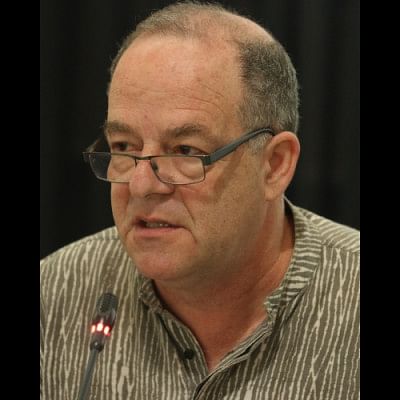
Dr. Larry Stillman, Lead of PROTIC Project, Monash University
Everyone has a mobile phone but we don't how to use it effectively in our work. We are stuck in a traditional mode of operation. Oxfam is very interested in hearing voices from the bottom. The mobile phone, internet and technologies around them seem to be a perfect way for villagers to inform, not just Oxfam but those in ministries, civil servants and other NGOs. But this needed research and Oxfam is not a research organization, whereas Monash is a research organization with one of the best IT faculties in the world. During the formation of the proposal, I came to Bangladesh two to three times and visited villages and other parts of the country that enabled us to send a strong proposal to our partner sponsor foundation.
We are awarding doctoral scholarships and are holding interviews on that at the moment. We are hoping to particularly promote and help women through this scholarship, which will go on for three and half and a half years.
A lot of conventional ICT research tend to be from the top-down. You have engineers who want to design an application or roll out initiatives such as wireless or mobile phones. They are less interested in social effects and they certainly don't know how to work from the ground up. By using the voices from the village, we can inform ourselves of what they need. For example, two days ago when we were in a very remote place, the women were very direct and specific on what they needed. This was an amazing challenge for us was their expectations. I asked them if we offer you advice through a service online where you can phone up and ask for advice instead of spending money and time to go to a vet, for example, how quickly do you expect advice. They said instantly. They no longer find it acceptable that farmers who live in a remote area may have to spend a day to visit the vet; they wanted the accurate, comprehensive, correct advice now.
The other interesting thing was when we asked whether they would be willing to take part in experiments, like taking a picture of their cow and sending it to us when they have a query, they replied in the affirmative, using the word 'selfies.' They were prepared to send us data so that we could send them to scientists or officers here in Bangladesh or in a lab in Australia. They expect to be partners in research which is fantastic. They have the knowledge and wisdom, and we provide more training to enable them to use technology. If you can get a thousand farmers to use the phone to collect these vital information, we can get rich data.
Another thing we are interested is in recording everything they say over the phone so that we can analyze very closely the things they say. So instead of aggregating everything into a statistic, we get that rich voice or multiple voices and we can use that.
I also think that through all this massive data, important policy advice could be obtained on how to build community information services in Bangladesh to better support union information centre and other organizations and develop accurate, comprehensive, trustable, branded advice. It should not be like they are getting a phone call from a commercial organization that is trying to sell them things; they can trust Oxfam or other NGOs.
We are moving away from the simple mobile phone to the feature phone which will have some apps that can help farmers for the effective use of smartphones. We can also experiment with a synthetic voice in Bangla so instead of recording messages in a studio, if, for example, we have a database of information on crops or cattle, they can access information, and the synthetic voice will read off information for them and they can hear it as many times as they want and give feedback over the phone. Bangladesh is an oral culture, so I think it's important that we use the audio and video features of mobile phones to help farmers, especially women agriculturists, to become informed.
Sustainability of ICT projects is very important. We need to look beyond five-year project. It could be a partnership program where both the users and the government will participate. We are thinking of a model of information service with only minimal symbolic cost for the user.
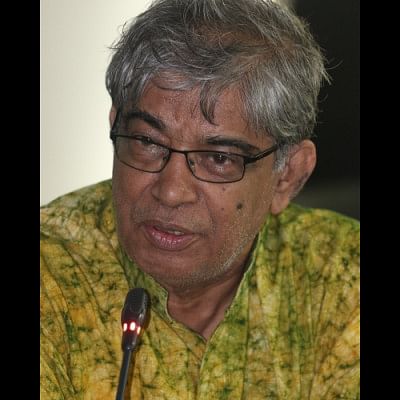
Mustafa Jabbar, IT Expert
We still think that technology is one aspect of our life and fail to realize technology has led to a digital revolution is a core part of our life. The recent ATM scam give us an insight on how technology can be used by people who do not need to be familiar with their surroundings to achieve their goal.
Bangladesh missed the industrial revolution. It is an agriculture based country that has to move to the digital age. As we have missed a step, it is definitely more challenging to reach that stage than it would be for other countries.
The future of global economy is going to be depend on research, innovation and creativity. We will find other countries working toward that goal but Bangladesh is not one of them. Research is a big challenge for Bangladesh and we need to focus on this area immediately and more extensively. We haven't even been able to come near the amount of budget spent by other South Asian countries.
We have provided digital devices without creating proper digital content. There is also lack of proper maintenance system of the devices. We always go for quantity not quality. But this trend should be reversed. Our content should be user friendly, targeted, interactive and multimedia-based.
The government has a plan to set up cable connection up to the union level by 2018. We appreciate this plan but what will happen then? Who will connect the houses with the cable line? The government does not have any plan about it. We should immediately formulate an action plan in this regard. We need to create a national movement to recognize internet as a basic right.
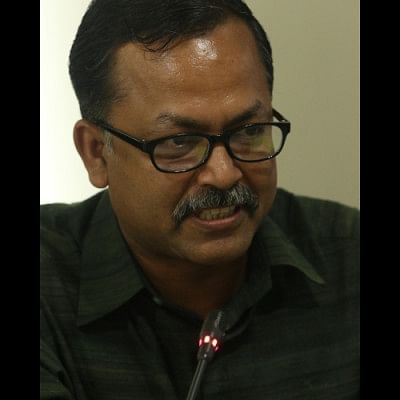
Shahid Uddin Akbar, CEO, Bangladesh Institute of ICT and Development
Our government officials do not feel comfortable to use ICT. They are skeptical about it. We need to assure them that ICT will make their life easier. We need to do more behavioral change communications. This is also true for the backward section of our people. We need to approach them repeatedly and inform them of the benefits of using ICT in their everyday life.
We have many good initiatives. Now we need to roll out these projects to a wider audience. We have to strengthen our institutional capacity.
Smart phones are still not widely used in our country. So if we always go for mobile apps, a large section of the people would be left outside our service.
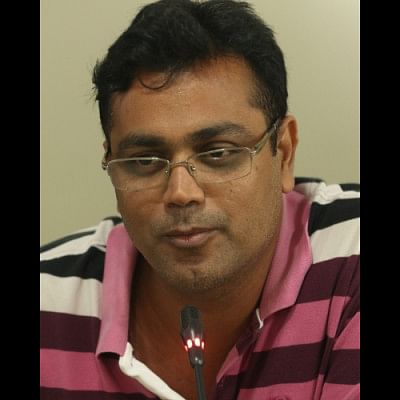
Md Rashidul Hasan, Associate Professor, BSMRAU
Many apps are only limited to file and folders. It should be content based and user friendly. We need to think about local contents where users will get information in their local dialects.
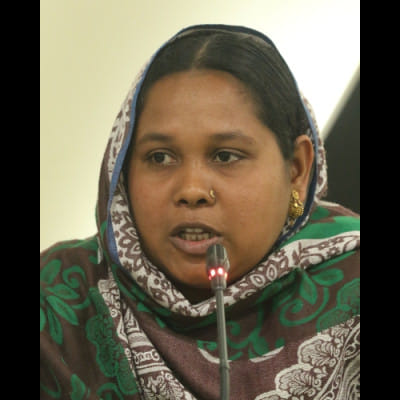
Farida Begum, Female Farmer, Dimla, Nilphamari
We use PROTIC's digital services that help us get real time information about cattle farming and homestead gardening. We need more of such services and we need to get instant access to the government information services as soon as possible. If we could know the information regarding the safety net program as well as the agricultural subsidies from the government time to time, it could help us a lot to know the current government scheme for us.
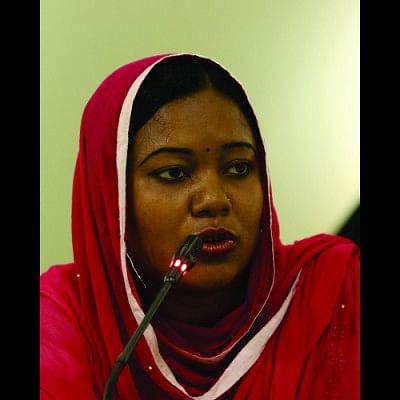
Shahanara Khatun, Female Farmer, Shyamnagar, Satkhira
Earlier we used to shift from one form of farming to another because we were helpless to the natural calamities. Now, we get information about alternative farming procedures through digital communication. A lot of us don't own smartphones. We are curious about using agriculture related apps through this modern communication device. I hope it will bring a positive change to our life.
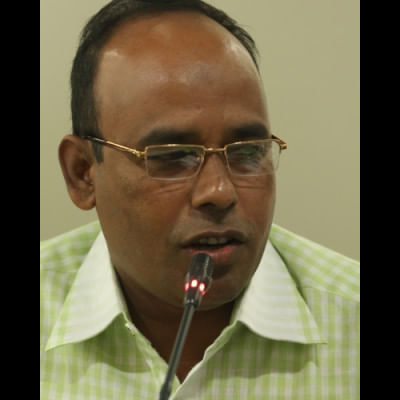
Rabiul Islam Shahin, Chairman, Tepa Kharibari Union Parishad
We need proper monitoring system to ensure proper functioning of the union digital centre. I applaud the PROTIC initiative. It will help people learn how to use ICT in their everyday life. It is important to set up digital centre in their working stations where people can get necessary information about using digital services.
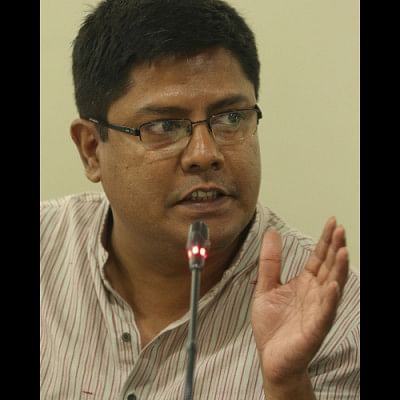
Pavel Hoq, Chief Operating Officer, Grameen Intel Social Business
The present approach to reach the grassroots people is mostly passive. We set up a digital centre and store information, but do very little to reach people. We need to be proactive in assessing the immediate demands of the users and approach them with the necessary information. Our digital products should also be made with a focus on the demands of the target audience.
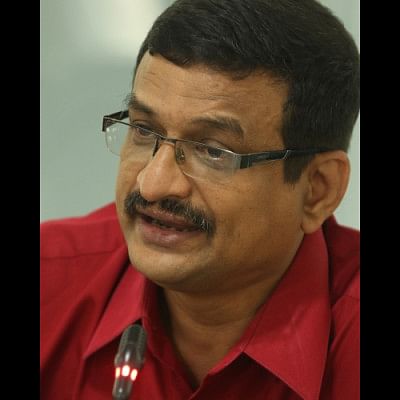
Dr Saiful Huda, Professor, Hajee Mohammad Danesh Science & Technology University
We need to follow a bottom-up approach. We have to generate demand of our services among the users. The services should be packaged in a lucrative way so that people feel encouraged to use it. Smartphones should be used to get necessary information, not just for entertainment.
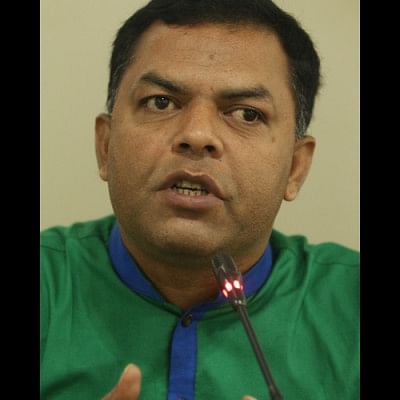
Sharifuzzaman, Executive Director, Nagorik Sanghoti Society
We need a strong monitoring system to ensure proper use of the government's digital services. In many cases we see that the designated government officials do not even know how to use the digital devices. So it remains unused or are used for other purposes.
We should extend our digital services beyond agriculture. There is a huge potential of digital services in the informal sector. We need to reach them.
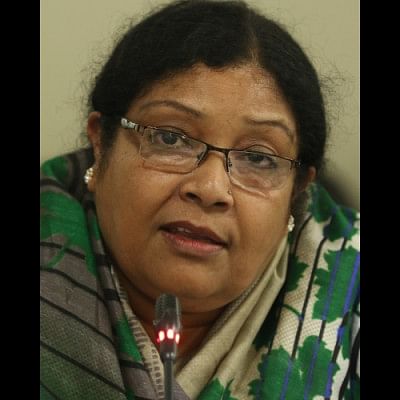
Shamim Ara Begum, Executive Director, Pollisree
We need to continue our programmes to make the interventions sustainable. We have to formulate action-oriented policies so that people take up the programmes on their own and use digital services for their benefit.
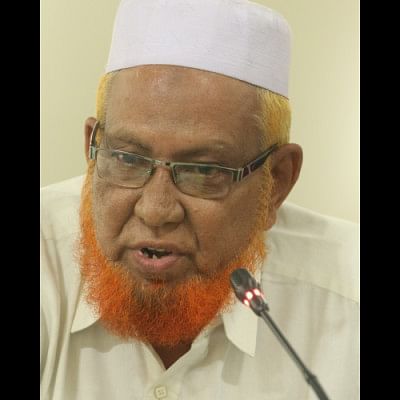
Dr. Abdul Hamid, Chairman, Atulia Union Parishad
The digital centre at our locality has been working successfully. The designated person stays there day and night. Thus, people can get nonstop services. I think it is important to employ people on a 24/7 basis in our digital centre.
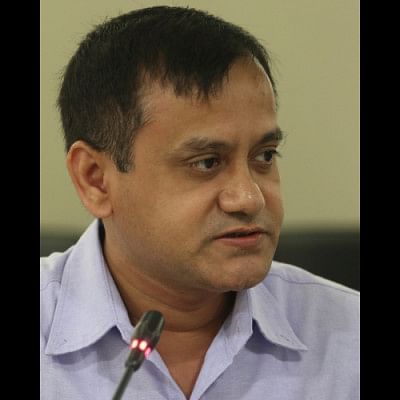
Rabiul Alam, Head of IT, Plan International
We need to do proper need analysis before taking any initiative. The government has provided computers to many schools where they do not have skilled resource persons to operate the device.
We need coordinate among the different ministries to avoid duplication of digital services. We also need to formulate a PPP model to coordinate among various government and non-government initiatives.
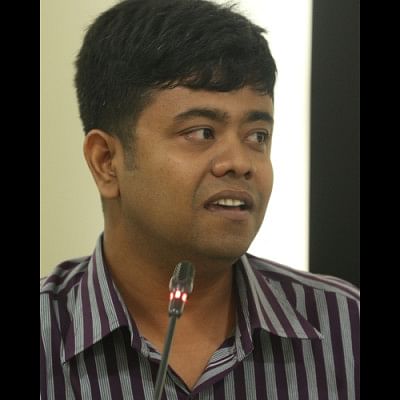
Dr. BM Mainul Hossain, Assistant Professor, Institute of Information Technology, University of Dhaka
Language barrier is a major challenge in getting expected outputs from ICT intervention. The solutions that are being generated are not for all grassroots people, as scientific names and words are being used in the apps or in the solutions. We need to ensure broadband or high-speed internet services for all. It takes several hours to download a file or use an app with the existing speed of internet. If we don't have a good internet speed, what will we do with the apps? Getting broadband internet should be our constitutionally guaranteed right.
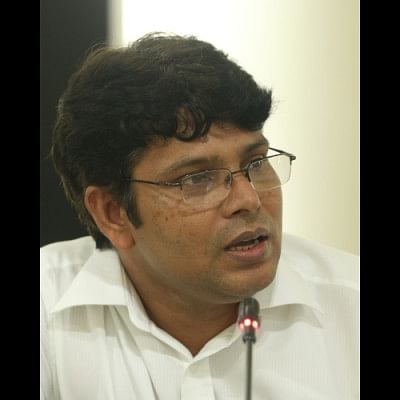
Mokhlesur Rahman Sagar, Program Manager, Practical Action
We need to look at the gender perspective of these initiatives. We need to make sure that no woman faces any sort of harassment through misuse of these digital devices.
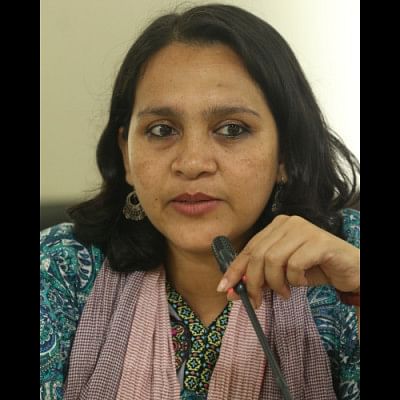
Taslima Miji, CEO, Techmania
We need to make the internet world safer for women. We have to ensure women's equal participation in the digital sphere. We should keep this in mind when we make any digital product.
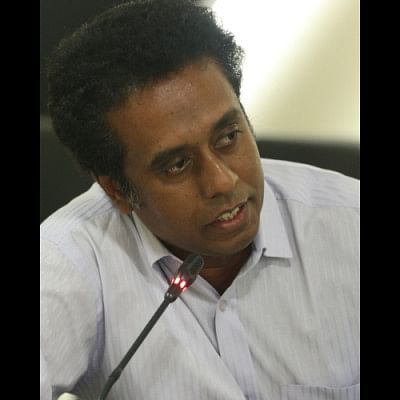
Shahidul Shuvra, IT Journalist
We need more budget allocation for the ICT sector. We should raise this demand in the upcoming budget session. The ICT sector should get similar incentives as enjoyed by other industries.
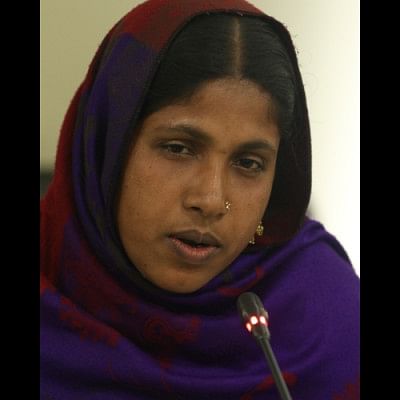
Monowara Begum, Member, Tepa Kharibari Union Parishad
There should be a training arrangement in union digital centre. PROTIC can take the initiative. Local public representatives should also be a part of the training process.
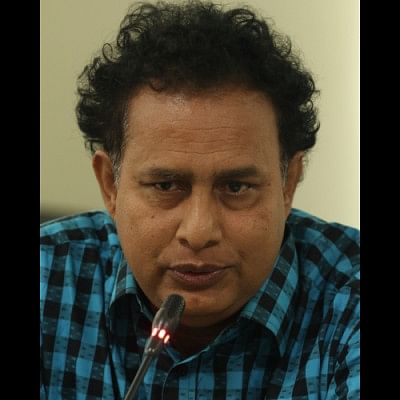
Mostofa Nuruzzaman, Chief Executive, Shushilan
In the coastal area, migration is a big issue. We need to think about how to reach these people. I believe digital services will bring a positive change in their life.
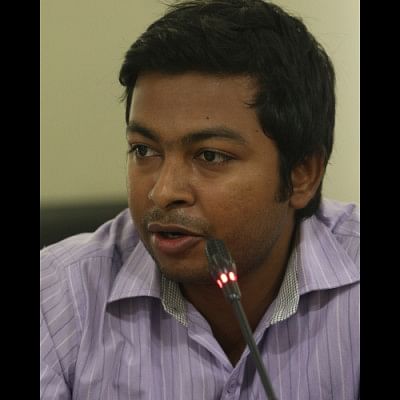
Syed Md. Mosarrof Hossain, CEO, NOBO IT
We need to make our apps user-friendly for the grassroots people. There should be local content. Its usage should be simplified. bKash is a good example in this regard. We can learn from their experience. The government should invest more in the ICT sector.

 For all latest news, follow The Daily Star's Google News channel.
For all latest news, follow The Daily Star's Google News channel. 


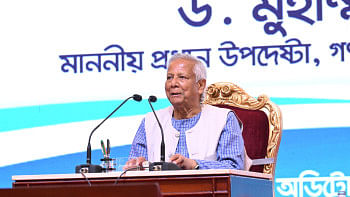
Comments